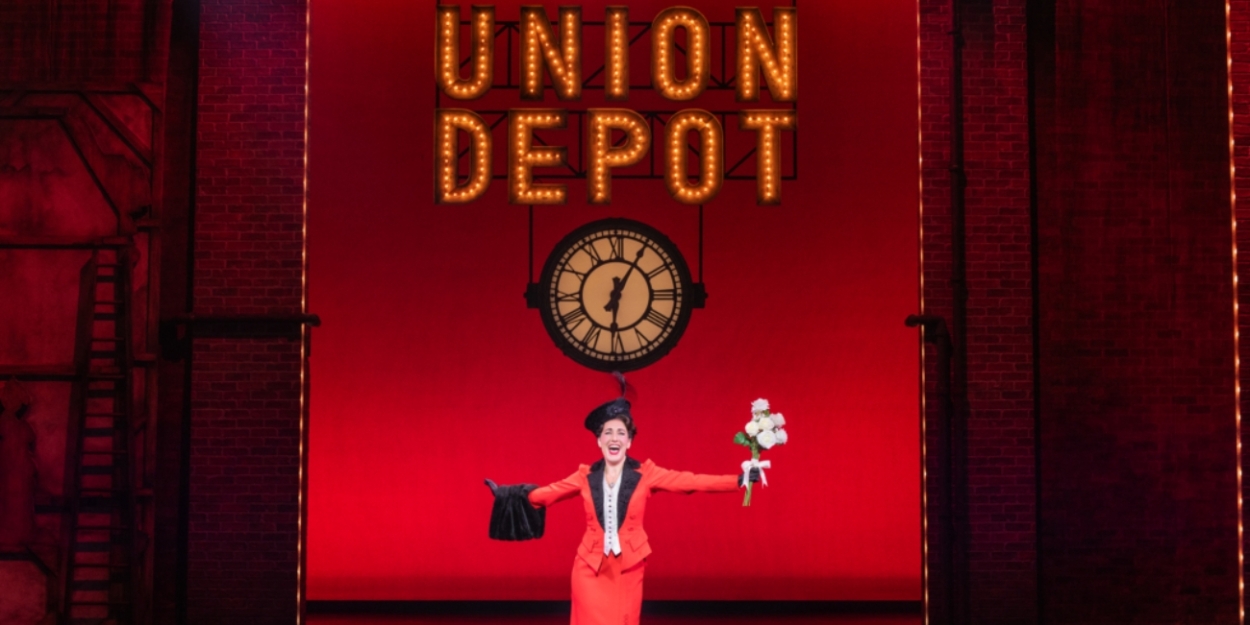Review: FUNNY GIRL Is Fabulous at DCPA
Who taught her everything she knows?

It is often too easy to forget the broad range of the musical theatre canon. What this generally leads to, at least for me, is feeling like I am unworthy of my "thespian" card. Though, as time continues to pass, opportunity knocks and suddenly I am seated in the theatre for a show that has avoided my viewing pleasure for years on end. Such is the case for the latest tour to make a stop at DCPA's Buell Theatre, the incomparable Funny Girl.
Directed by Michael Mayer, the production sparkles from start to finish. The choreography by Ellenore Scott with tap choreography by Ayodele Casel was created with cleverness and delivered with precision by the stellar ensemble. The other major creative element of the show that caught my eye were the transitions between scenes. Generally, it's not something that draws my attention, but there was something so thoughtful, at times graceful, that I couldn't help but notice. I would be remiss, though, not to mention the incredible orchestra under the baton of Music Director Elaine Davidson.
Fitting the well known musical numbers into, for me, the lesser known plot points was an interesting experience. It gave way to also learning just how much, or how little, certain characters are involved in the main story. Walter Coppage was all I imagined Florenz Ziegfeld to be prior to seeing the production. Though as it went on, I found Coppage to be inconsistent in his characterization. I think what I mean to say is that I would have preferred if Coppage made the distinction as to whether or not Ziegfeld is the kind of man that is, or isn't, "approachable" and make that known with every interaction, regardless of the answer.
A not-so-guilty pleasure of mine is catching performances with understudies going on in the main roles, perhaps due to a love of seeing people rise to the occasion. Understudy and Ensemble member Jack Bianchi took to the stage as Eddie, the forever platonic gentleman friend of Fanny whose nature it is to be kind and good. Bianchi was a softie in the role, which I mean to be complimentary, but it was his tap dancing skills that were a true force of nature. This does nothing to mention his playful attitude with the audience.
Nick Arnstein exists in this show as the proverbial "bad boy" archetype that ladies can't seem to resist. Which, hey, I get it - a strapping lad comes in with a heavy dose of charisma, boasting of his connections and wealth, making veiled promises of success and fame - who could resist? While Stephen Mark Lukas portrays Nick in all those ways, perhaps even more nuanced, I'll admit there was a bit of a musical disconnect. Clearly equipped with skills and training, I was surprised when it seemed Lukas strained to keep pitch in many of his numbers. He would often lean sharp and the vocal blend between he and others, especially Hannah Shankman's Fanny, seemed to clash more than mingle.
As Fanny's mother, Mrs. Brice, the legendary Melissa Manchester, as they say, showed the children how it's done. Earning applause from the audience on her entrance alone, Manchester displayed not just an understanding of her character, but comedic timing mixed with a healthy dose of seriousness. It was a special treat to hear the iconic Billboard-charting singer perform, though I admit, I couldn't help but ponder if there might be a encore performance of "Don't Cry Out Loud." There was not.
As our leading lady, Hannah Shankman is an out-and-out star. I actually found it quite unnerving, how easy she made it seem. Shankman's Fanny was irreverent to the women who have filled her shoes before, including the real life trailblazer. But, she was sure to add her own flare to the role and truly make it her own. Shankman's vocal tone was pure and clear, like crystal. It was such a delight to hear her sing many of the more well known numbers as they exist in the context of the show.
As time passes, some shows that have had some longevity start to be viewed in a new light. Sometimes, this leads to shows no longer being produced as the material tends to not age well. Then there are other shows like Funny Girl that maintain their case for support. Funny Girl isn't just about a woman's success in comedy. It reflects real life situations where fragile men can't cope with a breadwinner wife. It portrays what happens when unchecked drug, alcohol, and gambling addictions end up in the driver's seat. But perhaps, it represents the idea of choice and the consequences that come along with choosing, both good and bad. Choosing to say yes; choosing to say no; choosing to gamble; choosing a spouse over personal ambition; choosing to come to the end.
Funny Girl runs at DCPA through December 22, 2024.
Reader Reviews
Videos

